Dr Nasser Mustapha is a senior lecturer in Sociology and deputy dean, Graduate Studies, The University of the West Indies, St Augustine. He has served as consulting editor for the Encyclopedia of Caribbean Religions (a York University project). He is the author of two widely used textbooks on Sociology for Caribbean Students. He has served as a member of the subject panel and as chief examiner for Cape Sociology and has published several journal articles on drug abuse, education and stratification, and the sociology of health. He is also the president general of the Trinidad Muslim League (TML).
Q: What message would you like to give to T&T and our readers in this the most holy month in the Islamic calendar for Muslims?
A: This is a special month to Muslims worldwide, in which we are expected to fast from dawn to sunset. I wish to urge everyone to be more patient and co-operative and to be careful in our speech, actions and thoughts. Let us try to serve God by doing as much as possible to enhance and improve the condition of those around us, especially the less fortunate.
Most people will not know what life as a religious leader is like, what would you say to them?
I do not consider myself to be a religious leader in the traditional sense. I have been given the responsibility to lead the Trinidad Muslim League. The TML is a unique, non-sectarian and moderate Muslim group that tries to achieve change through education and moral development. It is our policy to keep away from religious controversies. I try to do my best at all times, to help wherever possible and to intervene when necessary. Of course, circumstances do not permit me to achieve all my goals, but I just have to keep on trying.
Tell us about your inspiration to be such a leader?
I never see leadership as wielding power or controlling the lives of others. I see it as a tremendous responsibility for which we are accountable to the Almighty God. This is a serious undertaking indeed. I am inspired by the plight of humanity, the daily suffering of people all around us, and the need to get people to treat each other in a humane and compassionate manner.
Islam is perceived by some (given the many acts of violence especially around the world) as a religion with an increasing number of fanatics and terrorists…what are you doing to counter these perceptions?
It is unfortunate that these acts of violence take place. I firmly believe that God created the world for a noble purpose, and that human beings are the most intelligent of God’s creation. People should fulfill God’s expectations of us, and live in peace, love and harmony despite ethnic, cultural and religious differences. It is unfortunate that violence and fanaticism exist. The Qur’an tells us that “there is no compulsion; truth stands out clear from error.” Terrorism and violence are certainly not the way of the Qur’an and the traditions of Prophet Muhammad (Upon whom be peace).
Why does mankind continually act inhumanely towards one another, and why is there so much suffering generally? Is this God’s plan to allow this?
The Qur’an tells us that “God does not change the condition of a people until they first change what is within themselves.” People must consciously turn to God, to increased spirituality and higher ethical and moral principles. In so doing, God’s blessings will descend upon all humanity. Chaos, disorder and discontent result from human errors and misgivings. We reap the results of the seeds we have sown.
What are the biggest challenges facing Islam?
The biggest challenges emanate from among the Muslims themselves with the biased and distorted interpretations of the scriptures; problems of integration in multicultural social milieu, the emphasis on peripheral issues, and the neglect of the plight of the less fortunate.
What advice would you give to a young person who is wondering about becoming a religious leader in your religion?
One does not aspire to be a leader. Aspire to be the follower of a great leader, serve God in all aspects of life, and eventually if leadership is thrust upon you, accept the responsibility.
Where were you born, where did you grow up, and what was it like?
I was born in San Juan. In my day, most of the youth were involved in sports, particularly football and cricket. The youth at my time were also involved in flying kites, pitching marbles, fishing, backyard gardening, spinning tops and hiking. I was a regular participant and spectator of all the major sporting competitions at the Aranguez Savannah. I must say there was never a dull moment during my teenage years. Unfortunately today’s youth are preoccupied with the trappings of the electronic age and are less involved in these outdoor activities.
What would you say is your greatest virtue?
Humility. I hate to say this since this is not being humble.
What daily motto do you live by?
I try to learn something new every day. If a day goes by and I do not learn something new, I feel bored and stagnant. I try to read a lot, ponder over the condition of the world and pray for peace.
At what schools/institutions did you receive your education?
I attended the El Socorro North Government School, The El Socorro TIA Islamia School, St Mary’s College, Port-of-Spain, and the University of the West Indies, St Augustine.
Describe your leadership style.
I have always tried to be as democratic as possible. I do not subscribe to autocratic leadership styles which do not bring out the best from one’s membership. We need to move in harmony with our members, recognising their uniqueness. I treat the members equally, consult as much as possible and make quick decisions in the interest of the group as a whole.
Describe yourself in two words, one beginning with N, the other with M (your initials).
Naturally; me. I am not one to blindly imitate or to mimic others without questioning. I try to be a freethinker with a style of my own, within the framework of my religious teachings: in everything I do, whether it is in teaching, leadership style or my relationship with others.
What do you feel is the most significant accomplishment of your career thus far, both as a UWI lecturer and as a religious leader?
My life was filled with many exciting moments, especially to have to teach adults and supervise students’ research. I am indeed proud that many of my former students have achieved great heights locally and internationally. This is indeed a comforting thought, and I hope I have contributed a little to their success. I am also proud about the publication of my books.
Who were the people who have influenced you the most in your career and in life in general, and how did they? Who are your role models, or who inspires you?
I feel inspired over the years by my teachers; of notable mention is the late Carol Keller who inspired me during my secondary school career. He was one of the most outstanding educators in the Caribbean. I am also grateful for the mentorship provided by Prof Ramesh Deosaran during my university career. I was also inspired by my parents who never gave up on me and continued to nurture, support and encourage me. I also received much support from my siblings, being the ninth child out of ten. I need to mention also the supportive role played by my dear wife who always believed in me and was a continuous source of inspiration and support.
What else do you want to accomplish?
I want to see peace, love and harmony in our nation. I believe that Trinidad and Tobago has the potential to be a model nation with so much talent and intellectual potential, but we spend all our energies wrangling over issues such as the distribution of resources and power sharing.
What daily motto do you live by and in three words, your recipe for success?
Keep close to God, and never give up.
What are your plans for the future?
I need to complete some of the work I have started and to document some of my ideas so that I can share my vision for world peace, which for me is an achievable dream.
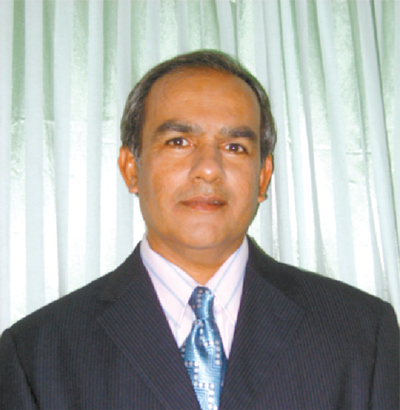
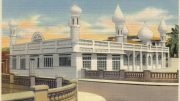
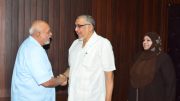
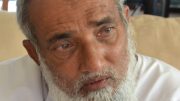
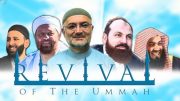
Be the first to comment on "Trinidad Guardian Interviews Dr. Nasser Mustapha – President of TML"